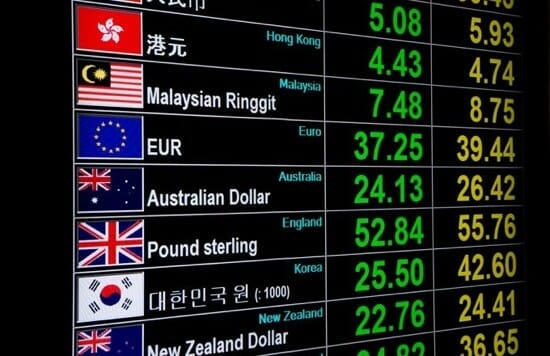Introduction
In today’s interconnected global economy, foreign exchange (forex) reserves play a critical role in ensuring economic stability and prosperity. Forex reserves, which comprise the total value of a country’s foreign currencies, gold, and other assets held by its central bank, serve as a safety net to support various economic activities and mitigate external risks. This article will provide a comprehensive overview of the global forex reserves landscape in 2024, exploring the latest trends, developments, and implications from a global perspective.

Image: forextrading24hoursaday.blogspot.com
Forex Reserves: Definition, Significance, and Trends
Forex reserves are financial assets held by central banks in the form of currencies, primarily U.S. dollars, Euros, and other reserve currencies. These reserves play a crucial role in maintaining a stable exchange rate, controlling inflation, and facilitating international trade and investment. By holding a sufficient level of forex reserves, countries can meet their external obligations, service international debt, and cushion the impact of external shocks, such as economic downturns or financial crises.
In recent years, the global forex reserves have witnessed a significant increase, reaching a record high of over $13 trillion in 2023. This growth is attributed to ongoing central bank interventions and the accumulation of foreign assets by emerging markets. The COVID-19 pandemic has further accelerated this trend, as central banks worldwide employed quantitative easing measures to stimulate their economies and stabilize financial markets.
Major Players in the Forex Reserves Landscape
China and Japan currently hold the top positions in terms of global forex reserves. China, with its massive trade surplus and vast foreign investments, had accumulated $3.34 trillion in reserves as of March 2023. Japan, known for its high savings rate and prudent monetary policy, held $1.3 trillion in reserves during the same period.
Other major players in the forex reserves scene include Saudi Arabia, India, Taiwan, Switzerland, and Russia. Saudi Arabia’s reserves are primarily supported by its oil exports and the resulting revenue influx. India, with its growing economy and large current account deficit, has accumulated reserves to manage external risks and maintain currency stability.
Factors Influencing Forex Reserves
Several factors influence the composition and dynamics of forex reserves. These include economic fundamentals, exchange rate policies, central bank interventions, and global geopolitical developments. Countries with strong economic growth and favorable balance of payments tend to accumulate higher forex reserves to cater to their import needs and international commitments.
Exchange rate policies also play a significant role. Countries with managed or fixed exchange rate regimes typically maintain higher forex reserves to defend their currency pegs. Central bank interventions, such as quantitative easing or foreign exchange market interventions, can also affect forex reserves by influencing currency supply and demand.

Image: beamstart.com
Regional and Global Implications of Forex Reserves
The distribution of forex reserves has implications for both individual countries and the global economy as a whole. Countries with low forex reserves may face challenges meeting their external obligations, maintaining currency stability, and coping with external shocks. On the other hand, countries with high forex reserves can play a stabilizing role in global financial markets and support cross-border capital flows.
At a global level, the adequacy of forex reserves can impact international liquidity and financial stability. Sufficient forex reserves provide a buffer against global economic downturns and financial crises by allowing central banks to intervene and provide liquidity support when needed.
Tips for Effective Forex Reserves Management
Effective management of forex reserves requires a balanced approach that considers both short-term needs and long-term objectives. Here are some tips for successful forex reserves management:
-
Maintain an optimal level of reserves: The optimal level of forex reserves depends on various factors, including the country’s economic size, trade exposure, and financial resilience.
-
Diversify the composition of reserves: Holding a diversified portfolio of currencies, gold, and other assets mitigates risks associated with fluctuations in any particular asset class.
-
Employ prudent investment strategies: Investing forex reserves in low-risk, high-return assets can generate additional income and enhance the overall value of reserves.
-
Use forex reserves strategically: Forex reserves can be used strategically to intervene in foreign exchange markets, support economic stimulus programs, or provide financial assistance to other countries.
-
Stay informed about global developments: Monitoring global economic conditions, geopolitical events, and financial market trends is essential for effective forex reserves management.
Frequently Asked Questions (FAQs) on Forex Reserves
Q1: Why are forex reserves important?
A1: Forex reserves play a pivotal role in supporting economic stability, maintaining currency stability, facilitating trade and investment, and cushioning the impact of external shocks.
Q2: How can countries increase their forex reserves?
A2: Countries can increase their forex reserves through various means, including trade surpluses, foreign direct investment, inward remittances, and central bank interventions, such as buying foreign currencies in the open market.
Q3: What are the risks associated with high forex reserves?
A3: High forex reserves can lead to inflation, currency overvaluation, and reduced profitability of domestic investments.
Q4: How are forex reserves used in practice?
A4: Forex reserves are used in practice to make international payments, intervene in currency markets, provide liquidity support during financial crises, and support economic growth and stability.
Forex Reserves By Country 2024
Conclusion
Forex reserves are a critical component of global economic stability and prosperity. The dynamics of forex reserves are constantly evolving, influenced by economic factors, exchange rate policies, central bank interventions, and global geopolitical events. By understanding the key concepts, trends, and implications of forex reserves, policymakers and economic analysts can develop effective strategies to manage these reserves and mitigate their impact on countries and the global economy.
Dear readers, I invite you to share your thoughts and perspectives on the topic of forex reserves. Are you interested in learning more about this topic? Your input and questions will help us shape future articles and discussions on this important aspect of global economic affairs.






